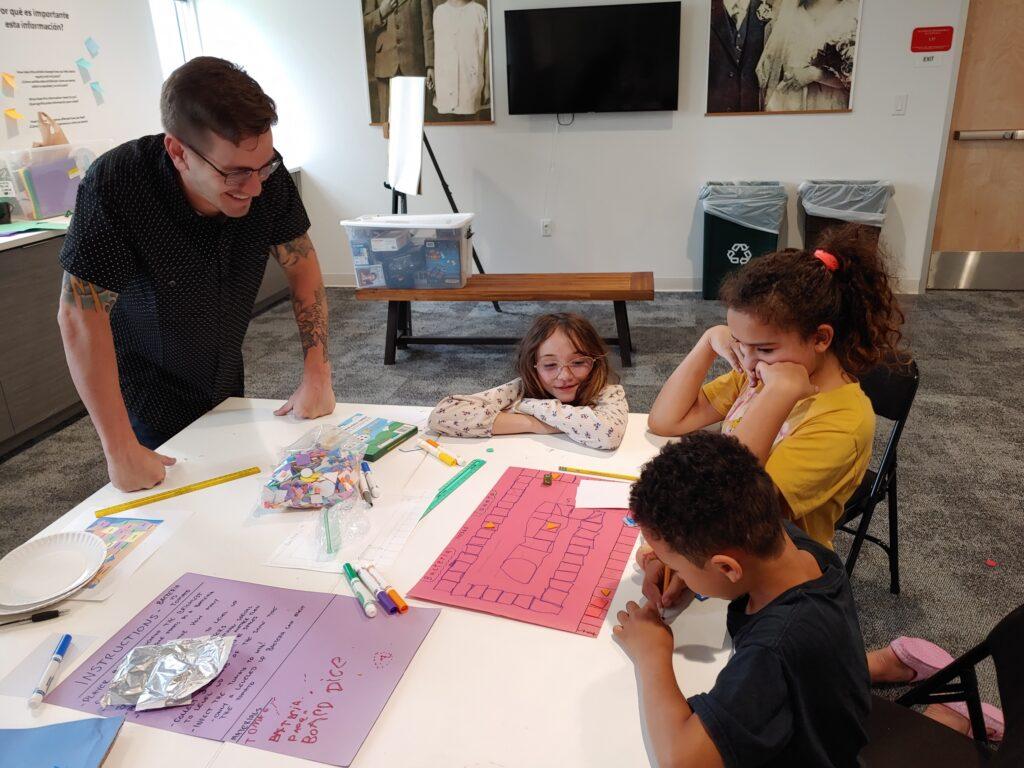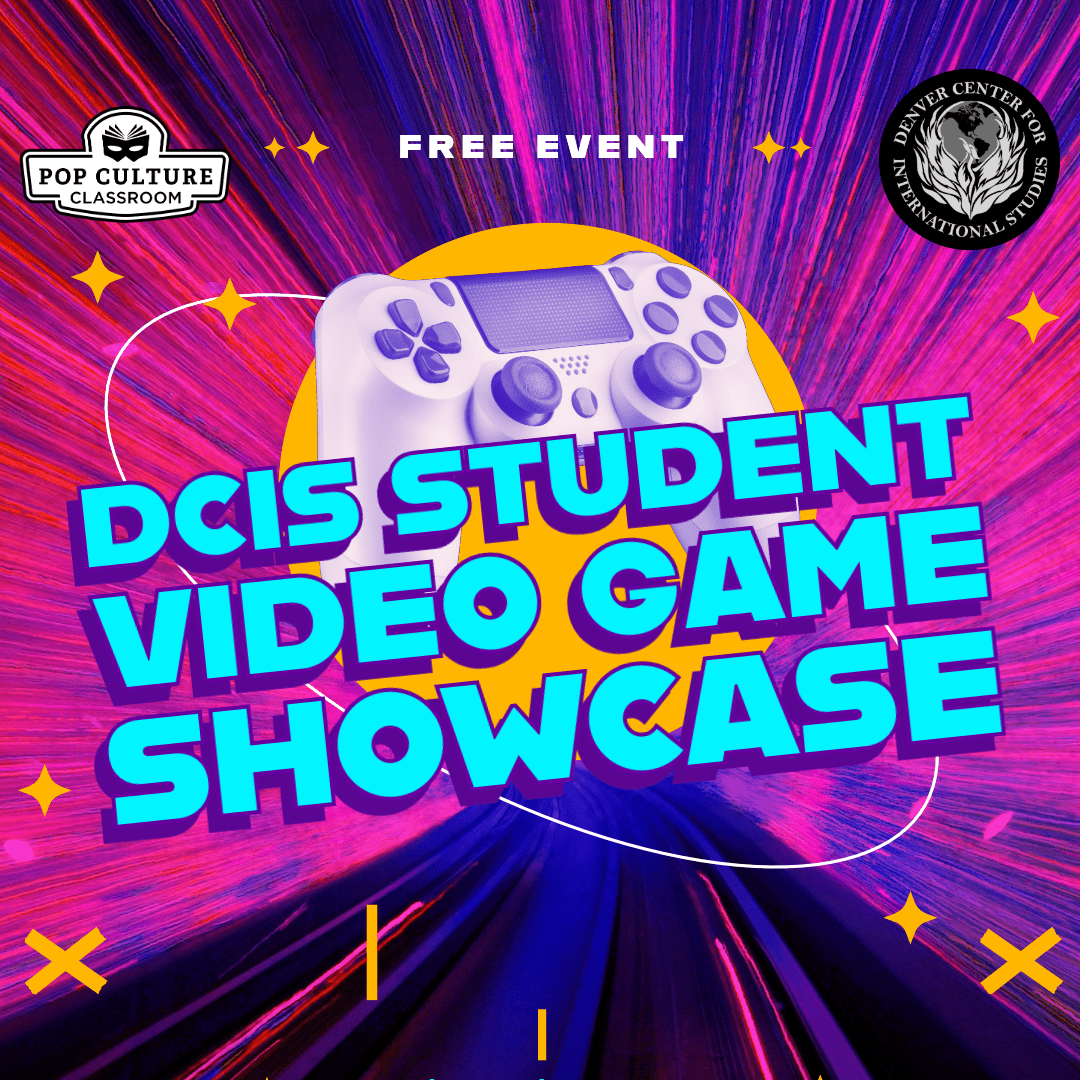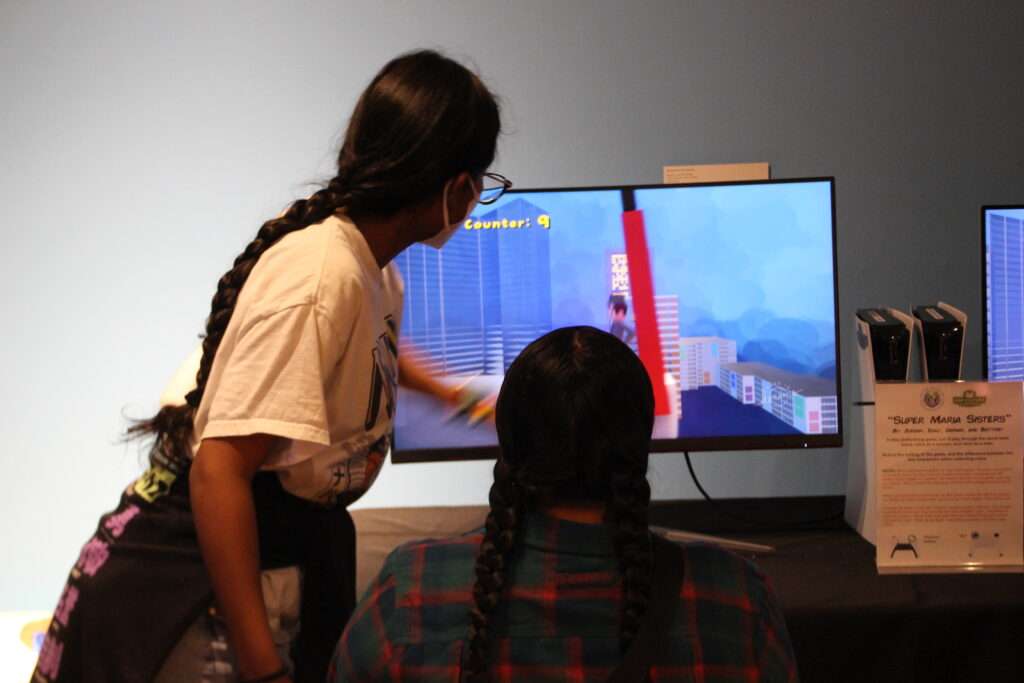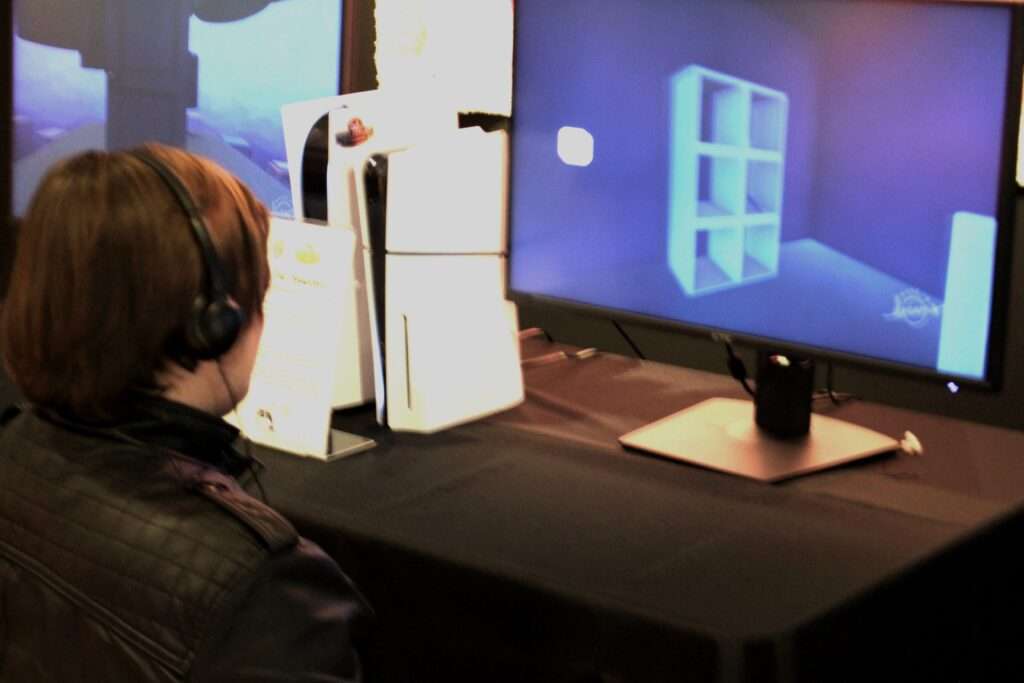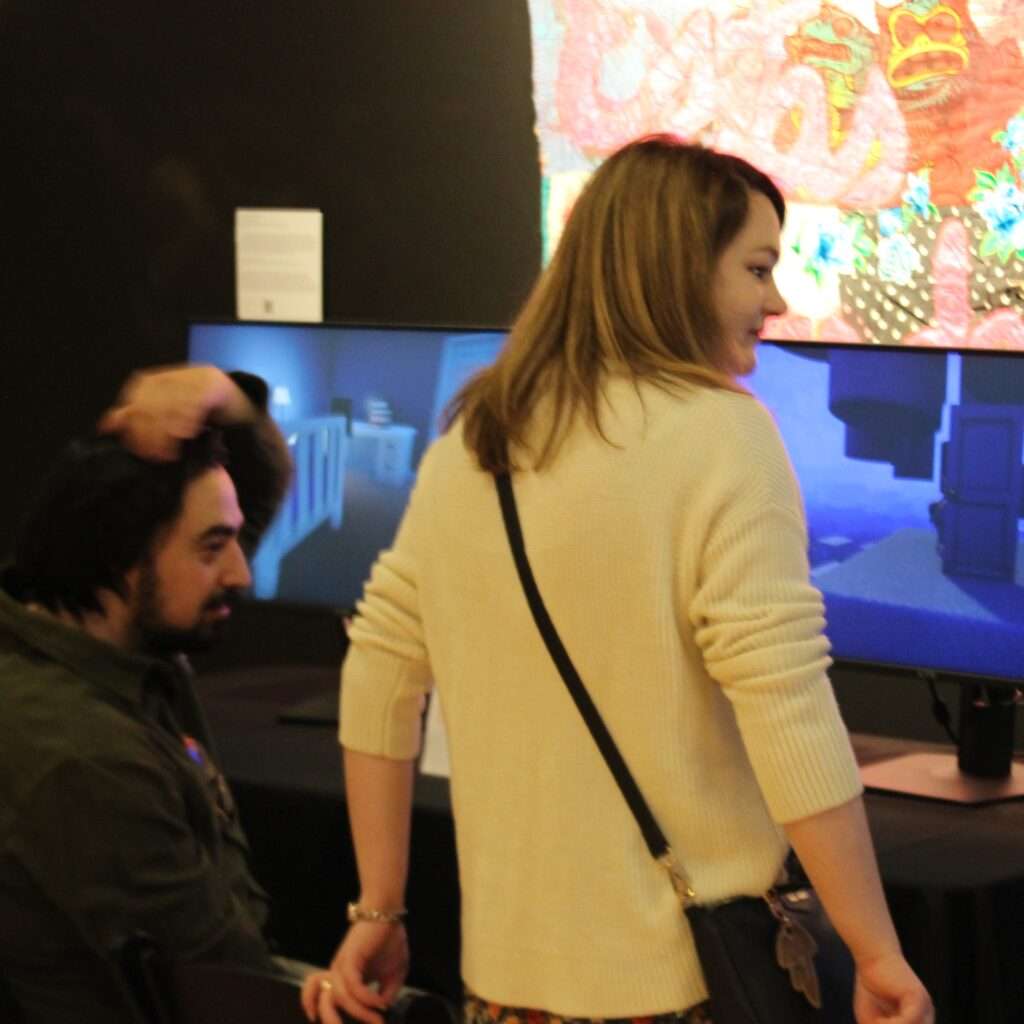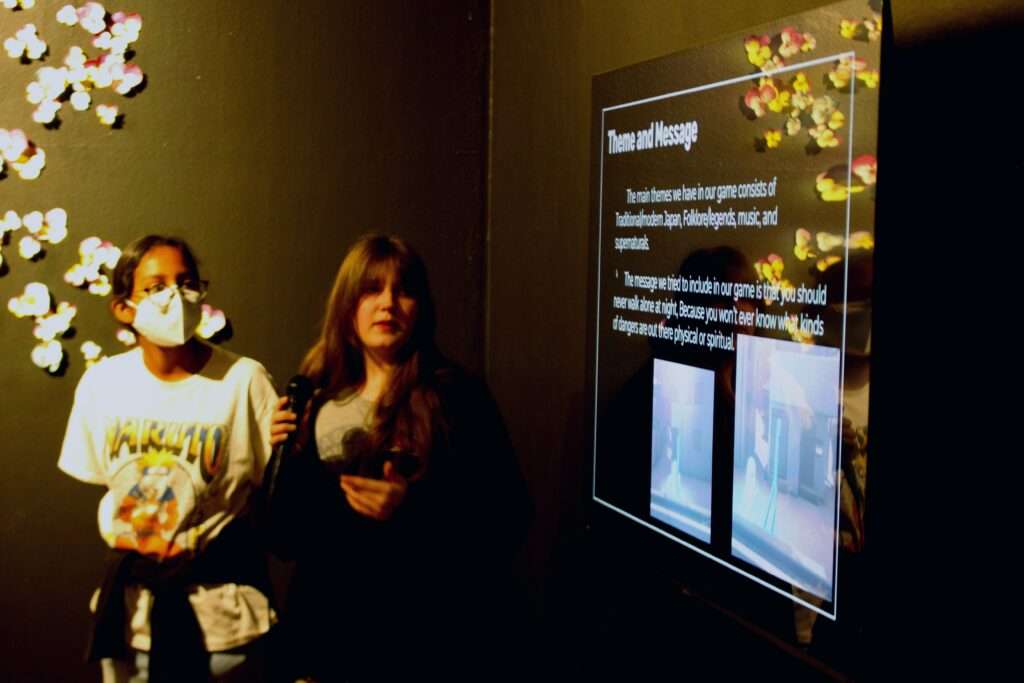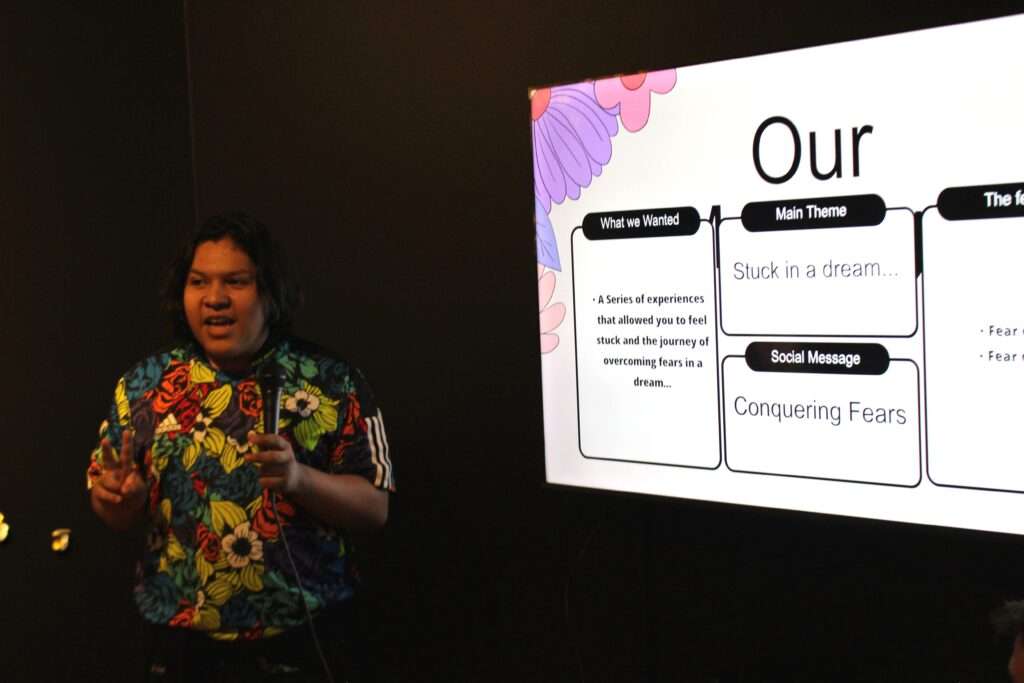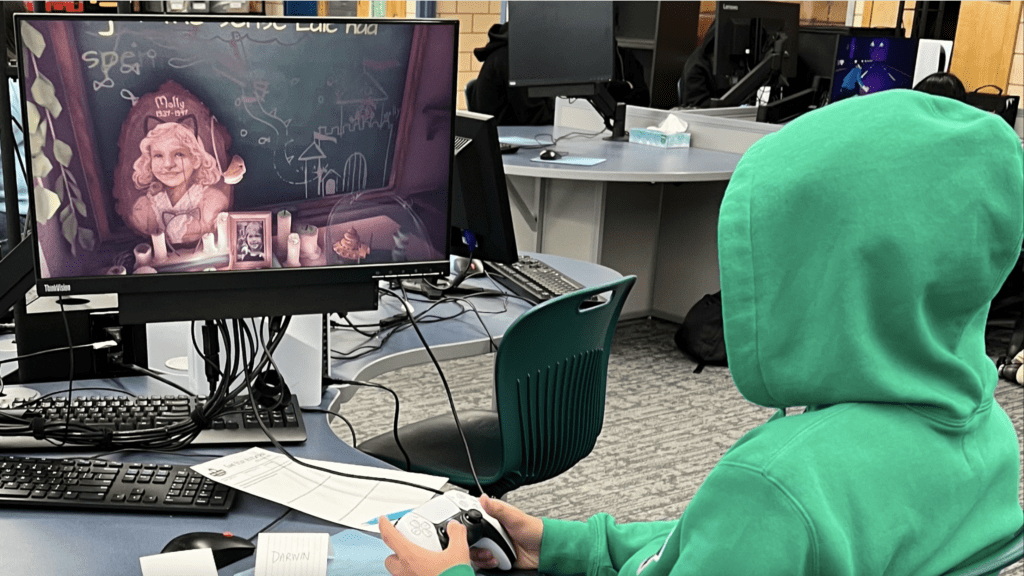Pop Culture Classroom is bringing video game creation into classrooms!
May 24, 2024 – High school students from the Denver Center for International Studies (DCIS) recently debuted their video game creations — and demonstrated the educational benefits of creating video games — at a special project showcase on May 9th at Denver’s Museo de las Americas.
Student game designers, peers, family members, educators, and community members had the opportunity to play student-created games and through them, learn about social issues that are important to the students. Students also offered short presentations about their games and the social message they hoped to communicate with their project.
In a special, unplanned moment, students even got to see their work acknowledged on that evening’s Next with Kyle Clark on Denver’s KUSA-NBC.
A Celebration of Student Creativity
The event marked the culmination of a semester-long narrative video game creation class taught by members of the Pop Culture Classroom team and DCIS instructor Olivia Conner.
Under the guidance of our Director of Education, Matt Slayter, students in the Principles of STEAM Engineering elective explored how narrative, gameplay, and artistic design combine to create interactive experiences and communicate stories. Then, they put these concepts into practice by creating a narrative-based game with a pro-social message.
Educational Impact: Benefits for Students
Developing narrative games offers numerous benefits for students:
- STEAM Skills – What better way to combine the skills of science, technology, engineering, art, and math, than video games!
- 21st Century Media Literacy – Video games are a unique storytelling medium, allowing the player to shape and be a part of the story. Students learned how to use video games’ unique interactivity to impact players with messages and emotions.
- Creativity and Innovation: Crafting stories and designing gameplay elements encourage students to think creatively.
- Problem-Solving Skills: Game development involves complex problem-solving and critical thinking as students work through design and programming challenges.
- Collaboration and Communication: Working in teams to create games fosters collaboration and communication skills, essential for future careers.
- Social-Emotional Learning: Narrative-based games can explore deep themes, helping students develop empathy and a better understanding of different perspectives.
Student-Created Video Games
This program, funded by the Redline Contemporary Arts Center, allowed students to play and analyze narrative-based video games before creating their own. After studying games such as What Remains of Edith Finch, Venba, and others, students used Dreams—a game-creation suite for PlayStation consoles—to begin creating their own game prototypes.
The result: student-created games such as Alone, From the Shadows, The Super Maria Sisters, and others — along with newly developed skills in media literacy, digital design, and artistic expression.
From the Shadows
Alone
Super Maria Sisters
Each game tackled a social message. Alone and From the Shadows address anxiety, fear, and daring. The Super Maria Sisters uses gameplay to highlight persistent gender pay disparities.
Video Games in the Classroom
At Pop Culture Classroom, we’re excited—and encouraged by this program’s success— to continue integrating interactive art into our educational programs. We’ll continue to explore how video games and video game design projects can further enrich student learning and creativity.
Video games can be an exciting intersection between education and interactive media. As such, they have the potential to be powerful educational tools, and we’re just scratching the surface!
Bring Pop Culture to
Your Classroom or Library
Are you an educator, librarian, or community group leader in the Denver metro area? Find out how you can bring our in-person workshops to a school, library, or community center near you.
